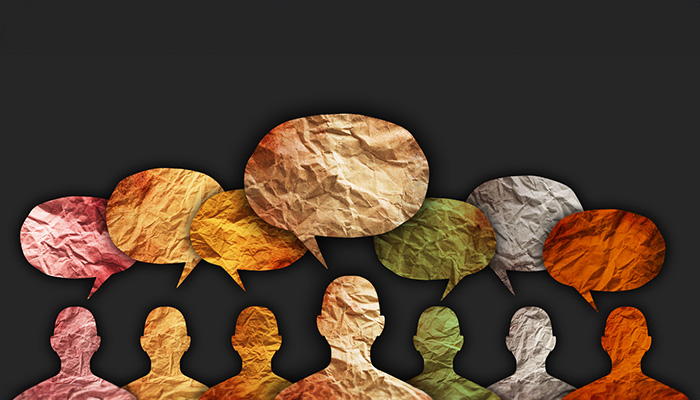Why Expert Translation is Crucial for your Export Business

Selling your products or services into markets abroad will help to grow your business, but getting set up can be an overwhelming process. Legislation, paperwork, product labelling, financial documents and the cultural differences between countries must all be taken into consideration if you want your company to thrive.
In this article we’ll take a look at some of the areas where an expert translation agency like Brightlines can help take your business into new territories.
Website Translation
Your website is likely to be the first point of contact that overseas customers have with your business, so accurate and culturally contextual translation is a necessity. Idioms and sayings that may work in the UK will often make no sense when translated into other languages so it isn’t enough to simply feed it through a machine translation service like Google Translate.
When compared to the costs you will pay for using a professional UK translation agency, machine translation may appear the attractive and more financially viable option. However, it’s a false economy. Machine translation makes mistakes and can end up turning the meaning of the text on its head.
Even human translation can have its flaws if not done by a true expert in the culture and lexicon of the source language. This is where transcreation comes in. This is the process of adapting content from one language to another while maintaining the tone and style of the original. It may involve a complete reimagining of your content to allow it to resonate better with a different culture, but the brand messaging will remain the same.
In other words, transcreation is creating something that has the same power and emotional connection with the reader as the original text.
Transcreation requires creativity, intelligent articulation and, most of all, a deep cultural understanding of the native language and its idiosyncrasies. These are skills only specialist translation agencies like Brightlines can offer.
Multilingual SEO and Localised Social Media
Once your website has been translated, you need to make sure people can find it via search engines and social media. Multilingual SEO is the practice of incorporating localised keywords and search terms into the content of your website to make sure potential customers can find it in their native language. This is another area where it is a mistake to rely on Google Translate. Skilled human translators can undertake keyword research in their native languages and help you find localised search terms that you would never find using a blunt machine translation system.
By considering both linguistic differences and cultural nuance, your export business can compete with native language websites and start making inroads in rankings regarding local search results.
If you use social media to attract people to your export business, it’s vital that you localise your content. This means adapting it to a specific location or market and includes elements such as modifying graphics, converting units and measurement and currencies, using localised formatting for dates, phone numbers and addresses, and following local regulations and legal requirements. Localised social media makes your content more accessible and appealing to people in the target market, which is better for your business.
Translating Packaging Labels
Poor marketing translation may well damage your reputation or hinder your growth but when it comes to packaging there are serious legal and legislative considerations to take into account. If you are exporting food, drink, medicine or anything else that might be ingested, such as health supplements, there is no margin for error when it comes to translation.
Certain ingredients can exacerbate allergies or intolerances, or even be fatal. You must be fully aware of what the legal packaging requirements are for each country you are exporting to. In the EU, for example, pharmaceutical labels must be presented in the official language(s) of the country they are sold in. If customers don’t know what a product contains or how to use it, injury or illness could occur. It is therefore essential that translations of often complex ingredients, additives and chemicals are 100% accurate.
Due to the risks involved, it’s vital to use a translator who has experience of the industry as well as fluency in the original and target languages. Names of pharmaceutical ingredients can be especially complex and are easy to mistranslate if they are unfamiliar. It’s also important for the translator to know the conventional layout of drug ingredients lists, and be able to localise them in the target language if necessary. Every single detail must be correct, as non-compliance with rules and regulations surrounding labelling and packaging could lead to legal issues.
Document Translation for Export
There is a high volume of paperwork involved in international trade, much of which will need to be translated to ensure your goods are allowed into the country they are destined for. These will include:
- Commercial documents such as price quotes, invoices, sales contracts, inspection certificates, product testing certificates and insurance paperwork.
- Transport documents such as shipping orders, bills of lading, waybills, packing lists and shipping guarantees.
- Government documents such as certificates of origin, export declarations, export licences, delivery verification certificates and customs invoices.
If you don’t have these documents properly translated your export goods could be delayed or even returned. It is likely you will also need to translate legal documents such as contracts and your business terms and conditions. Depending on the country, these may need to be certified translations, which means they carry a certificate from the translator confirming that the translation is an accurate representation of the source text.
Financial Translation
Doing business internationally requires a large number of financial documents to be translated. It is vital that these are carried out by a professional translator who is an expert in both the financial industry and language of the target market. When you have legal obligations in terms of documents such as tax reports and insurance policies, you don’t want them to contain any errors.
Aside from potential legal issues, the financial health of your business relies on using a translator who understands the different accounting systems and principles used in the country you are exporting to. Translators in this area need impeccable attention to detail as just one misplaced decimal point can be disastrous when it comes to financial documents. If numbers or figures are misrepresented due to poor translation, your export business could end up losing a lot of money.
Expert translation is a crucial part of a thriving export business, so don’t be tempted to cut corners. Working with an experienced professional translation agency like Brightlines will ensure that all of your paperwork is 100% accurate and your website and marketing materials are communicating with your local audiences, helping you gain ground in the international market.






